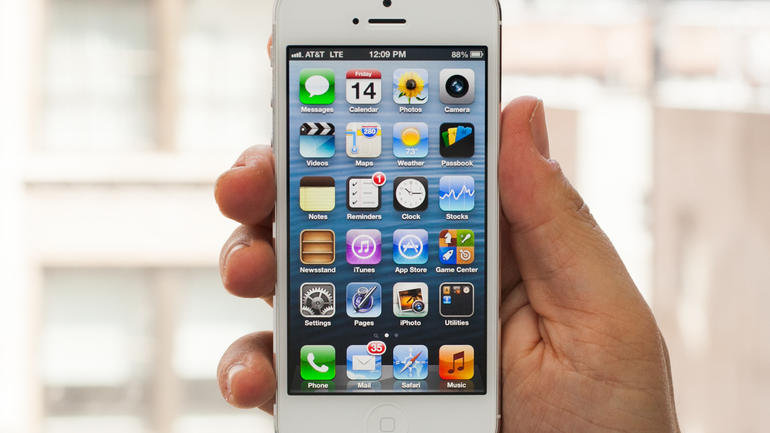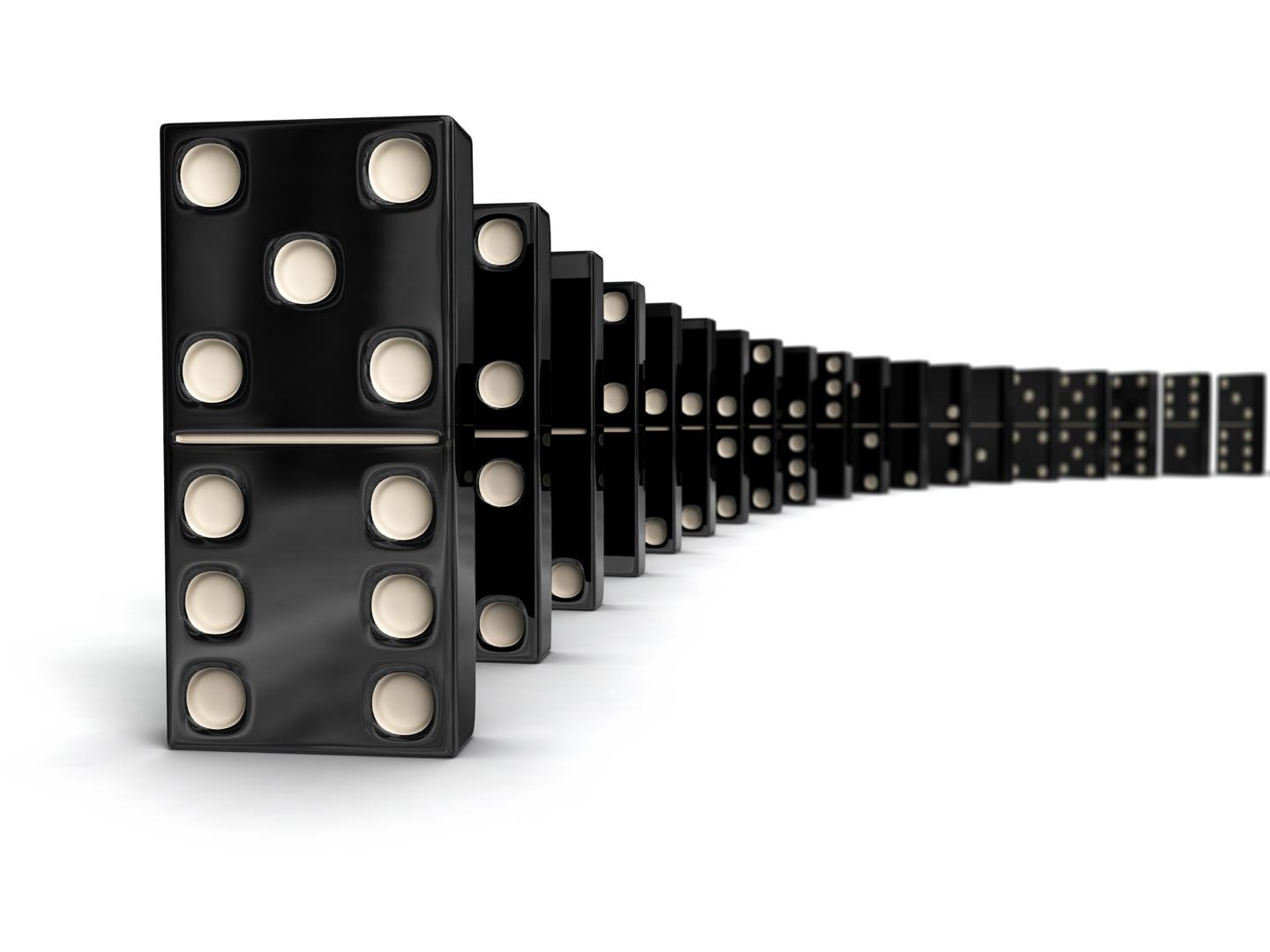One Word That Will Change Your Life
What if there were one word that had the power to change every aspect?of your life? What if one word could affect your health, your finances, your marriage, your career? What if applying one word to your everyday life could really have that much of an effect?
The Power of Habit (which isn't our "one word")
Charles Duhigg wrote about habits in his 2012 book?The Power of Habit, which I briefly reviewed here. As Mr. Duhigg explains, your brain develops habits so you don't have to spend energy thinking through decisions--you just act without thinking. An important part of that process is the "habit loop," which works like this:First, there is the?cue‘that triggers the habit;Second, there is the routine?itself;Third, there is the?reward from the routine.
This Is Why You Are Addicted to Your Phone
In practice, the habit loop might work like this:1. Your phone buzzes. That's the?cue.2. You take your phone out and look at it. That's the?routine.3. You get a dopamine hit from the new email. That's the?reward. Note that sometimes the email or notification you get isn't meaningful to you. But, because?sometimes the notification might mean something, your brain still perceives it as a potential reward. The power of the habit loop is evident in the way many of us will interrupt virtually anything else going on in our lives to look at our phones when they buzz. And it's all because of the simple habit loop of?cue, routine, and reward.
The power of the habit loop is evident in the way many of us will interrupt virtually anything else going on in our lives to look at our phones when they buzz. And it's all because of the simple habit loop of?cue, routine, and reward.
Change Your Habits, Change Your Life
Knowing this about habits, we are able to manipulate them to get the results we want. In some ways, for example, Alcoholics Anonymous is all about replacing destructive habits with healthy ones. (This is why coffee is an important part of so many AA meetings. Coffee becomes part of a replacement habit loop.)Here's the truth: if you are intentional about your habits, you can change your life.
The Power of a?Keystone Habit
 The really interesting part of?The Power of Habit?is the discussion about so-called "Keystone Habits." A keystone habit is a simple habit that has effects that cascade into other aspects of an individual's or a group's life.So, a keystone habits might be:
The really interesting part of?The Power of Habit?is the discussion about so-called "Keystone Habits." A keystone habit is a simple habit that has effects that cascade into other aspects of an individual's or a group's life.So, a keystone habits might be:
- Exercising every morning;
- Making your bed every morning
- Having all?players on the team put on their socks in a certain way;
- Putting safety concerns on the top of your corporate agenda.
To think of it another way, a keystone habit is the first domino that falls and knocks down all the others with it.So, a keystone habit in healthy families is having dinner together at home every evening. That simple practice affects the relationship between the mom and the dad and the kids' behavior in school and even their reading level. It's one domino that falls, knocking over a bunch of others.
A One Word Keystone Habit Guaranteed to Change Your Life
Very early in the morning, while it was still dark, Jesus got up, left the house and went off to a solitary place, where he prayed." (Mark 1:35). [My emphasis.]
![[wikipedia.com]](http://static1.squarespace.com/static/5d70f59aefca59000162e4e6/5d7fcef39f682762992c8aca/5d7fcefd9f682762992c8c01/1568657149862/Dawn_Xepon_Laos.jpg?format=original) "Early"?is a word that can change your life.Early?is about intentionally spending?the first 15 minutes of your day--before doing anything else--in silent prayer and scripture reading.Early?is shorthand for a keystone habit that will affect every other part of your life. Guaranteed.
"Early"?is a word that can change your life.Early?is about intentionally spending?the first 15 minutes of your day--before doing anything else--in silent prayer and scripture reading.Early?is shorthand for a keystone habit that will affect every other part of your life. Guaranteed.
Don't Start Your Day Being Reactive
Most of us start our day in this way:1. The alarm goes off. (The?cue.)2. We pick up our phone and check our email, or our Facebook or Twitter accounts, or turn on our preferred news channel, or check on an overnight sports score. (The routine.)3. We get a hit of dopamine as we feel more connected and assure ourselves we haven't missed out on anything. (The?reward.)What's so problematic about this habit is that?it means‘that we are spending the first minutes of our day in a reactive rather than an active pose.![[http://larrycuban.wordpress.com]](http://static1.squarespace.com/static/5d70f59aefca59000162e4e6/5d7fcef39f682762992c8aca/5d7fcefe9f682762992c8c05/1568657150073/andertoons-check-email.jpg?format=original)
No Wonder We Are Such Anxious People
Do you really want to spend the first minutes you have every day seeing what someone else had for dinner or hearing another depressing headline about the world or worrying about your boss's latest request? Rather than being in control of your day, starting your day by checking headlines or email or social media accounts means you are immediately ceding control to someone or something else.
The Power of the First 15
Now, imagine the alternative.1. The alarm goes off.2. You get up and settle into your favorite chair or sit at the kitchen table or go on your front porch. You deliberately cultivate a sense of gratitude at another day of life. You think over the coming day's appointments and pray for each of them. You read a psalm or a portion of a scripture reading plan. You pray for your family, your colleagues, your city.3. You shut your Bible, close your journal, take a deep breath, and start your day.Can you imagine what could happen if you intentionally started every day like this?Can you imagine how much more control and how much less anxiety you'd have throughout the day?
Don't Worry If You're Not a Morning Person
Everyone has to get up sometime. Even if you aren't a morning person, you can still wake up 15 minutes earlier than you would normally. "Early" means to be deliberate about your first 15 minutes. It doesn't really matter when that 15 is. If you work the night shift, your first 15 could be 4:00 PM. What matters is that you spend your first 15 minutes in silence and scripture.
Don't Worry If You're Not a Religious Person
Even if you don't believe in prayer or scripture, you can still do this. Spend the first 15 minutes of your day thinking of all you have to be grateful for.
5 Steps to Life Change
- Create a morning routine. Think deliberately through your cue, your routine, and your reward. Maybe you need to set the coffee machine to be a part of your First 15. For me, marking a big fat "X" on a paper calendar is surprisingly satisfying.
- Create an evening routine. You need to prepare the night before for how you'll spend your First 15 every day. Lay out your Bible; set out your cereal bowl. Whatever it is, your morning routine begins with an evening routine.
- Plan your time. Don't just get up and see what you want to do. Rather, make a plan to follow a certain reading plan or to pray over a certain list of names or read an online devotional or to deliberately list all the gifts?for which you are grateful that day, etc.
- Commit for 21 days. Anyone can commit to the First 15 one day, but that's not enough for the habit loop to affect your behavior. Commit for three week?no matter what and see what happens.
- Evaluate. What's working? What's not working? If you are struggling to make the First 15 a habit, then you should reexamine your habit loop. Is the cue not clear enough? Is the routine not smooth enough? Do you need a better reward?
Pushups Over Time
Following a habit once doesn't make any difference; following a habit for weeks and months and years will change your life. Doing 20 pushups today is irrelevant; doing 10 pushups a day for 100 days will radically alter your health.Being deliberate with your First 15 once might not make a big difference, but even 3 weeks of practicing the "early" habit will make you into a different person.
What do you have to lose?
P.S. Folks in my church are currently following a scripture reading plan called "Eat This Book." Today is the first day of a new book--we're beginning Luke's Gospel today. Why not make a chapter of Luke's Gospel part of your First 15 for the next 3 weeks?